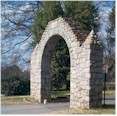Parent Pages
Sibling Pages
Child Pages
Owner: Take old building / But city says it's up to him to fix it up or tear it down Saturday, October 24, 1998
BY GORDON HICKEY
Times-Dispatch Staff WriterLeonard Marx says the city of Richmond can have the vacant building at Eighth and Broad streets, along with the mulberry tree growing out of an attic window.
Marx is the New York businessman whose corporation has owned the former Murphy Hotel annex building since 1951. He said it's the city's own fault the vacant building is still standing there, and he said he has offered the hulk to the city.
But the city doesn't want it. It is the city's position that it is up to the owner of the building to either fix it up -- which everyone says would be nearly impossible -- or tear it down.
"The corporation will give it to the city, period," Marx said in a telephone interview yesterday.
But Richmond Building Commissioner Claude Cooper said the city will take the matter before a grand jury on Tuesday and try to get the building declared a public nuisance under Operation Squalor, an effort by the city administration and police to target run-down properties that are breeding grounds for drug dealing and other crime.
If that happens, the corporation could face criminal charges.
The city contends that tearing the building
down would cost more than $500,000. That includes taking care of some environmental problems, including asbestos, bird droppings and lead paint.
Marx said that isn't so.
"You can tear it down for $250,000," he said. The asbestos isn't significant, he said, because it's limited to some pipe insulation in the basement.
Marx said the corporation can't tear the building down because "they [the corporation] haven't got any money." He said he might have only a small interest in the corporation, which is called the Seven Fifteen Nineteen East Broad Street Corp.
He also said money from other corporations associated with him and Marx Realty of New York City, the property management company, don't have to pay for the demolition because the corporations are all independent of one another.
"The corporation has no funds. What is the corporation going to do?" Marx asked.
The city has been trying for years to get the owners to tear the place down. With the mulberry tree sticking out over Broad Street, it is one of the more visible of the 2,400 vacant buildings in the city. It also is one of the approximately 1,200 buildings that the city says should be demolished.
The battle for the city is in trying to get the owners to pay for that demolition.
Marx said the city ought to just take it, tear it down and put in a parking lot. He said revenue from a lot would "just about" cover the cost of demolition.
But Cooper has said it won't. Besides, he said, the corporation should pay for tearing it down, not the taxpayers. He said it wasn't the city's fault the building was allowed to deteriorate.
Marx said it is the city's fault the building is still there. "The street died," he said. The building, he said, always was a loser. "Expenses of operations and taxes were always bigger than the income," Marx said.
According to Marx, Burger King, the fast food restaurant chain, wanted to buy the property. The city stopped the deal, he said, because it wouldn't allow a drive-through window there.
Cooper said that wasn't so. He allowed that Burger King did want a drive-through window and the city was opposed, but he said that didn't kill the deal. "The last I knew, Burger King was looking at the lead and asbestos," Cooper said.
Marx, who said he is 94, said he has few options other than to let the city have the place. "If I was younger, I'd go out and invest some money in it."
© 1998, Richmond Newspapers Inc.
Last updated 02/24/02
Please send questions or comments to John Butcher
